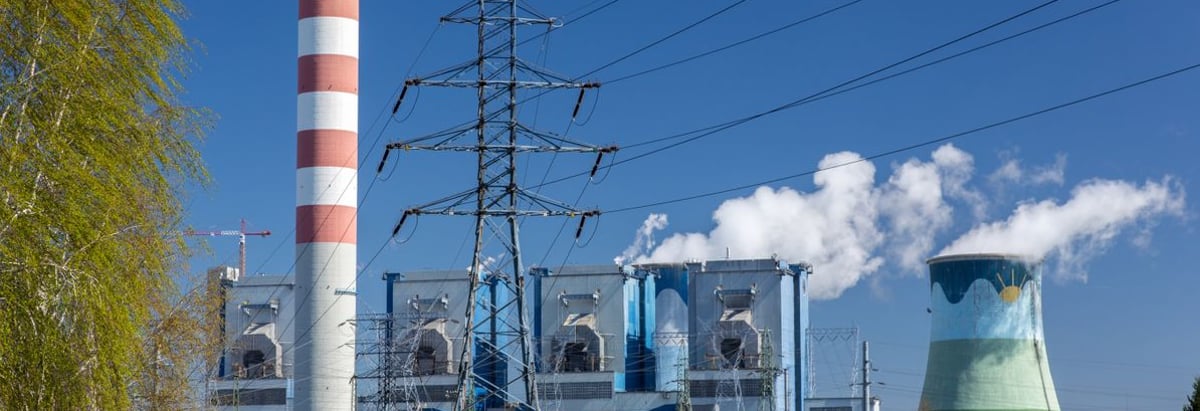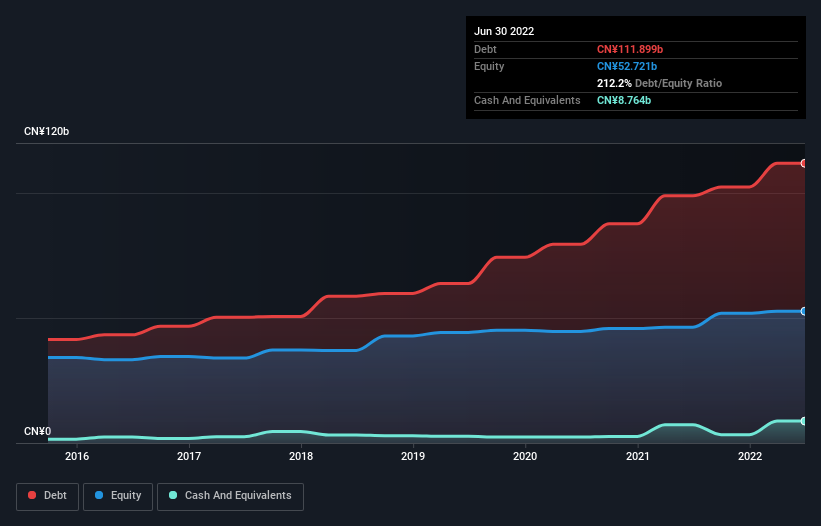- Hong Kong
- /
- Renewable Energy
- /
- SEHK:2380
Here's Why China Power International Development (HKG:2380) Is Weighed Down By Its Debt Load

Legendary fund manager Li Lu (who Charlie Munger backed) once said, 'The biggest investment risk is not the volatility of prices, but whether you will suffer a permanent loss of capital.' So it seems the smart money knows that debt - which is usually involved in bankruptcies - is a very important factor, when you assess how risky a company is. Importantly, China Power International Development Limited (HKG:2380) does carry debt. But the real question is whether this debt is making the company risky.
When Is Debt Dangerous?
Generally speaking, debt only becomes a real problem when a company can't easily pay it off, either by raising capital or with its own cash flow. Ultimately, if the company can't fulfill its legal obligations to repay debt, shareholders could walk away with nothing. However, a more usual (but still expensive) situation is where a company must dilute shareholders at a cheap share price simply to get debt under control. Of course, debt can be an important tool in businesses, particularly capital heavy businesses. The first thing to do when considering how much debt a business uses is to look at its cash and debt together.
View our latest analysis for China Power International Development
What Is China Power International Development's Debt?
As you can see below, at the end of June 2022, China Power International Development had CN¥111.9b of debt, up from CN¥98.9b a year ago. Click the image for more detail. However, because it has a cash reserve of CN¥8.76b, its net debt is less, at about CN¥103.1b.

A Look At China Power International Development's Liabilities
The latest balance sheet data shows that China Power International Development had liabilities of CN¥47.4b due within a year, and liabilities of CN¥87.7b falling due after that. On the other hand, it had cash of CN¥8.76b and CN¥13.8b worth of receivables due within a year. So it has liabilities totalling CN¥112.6b more than its cash and near-term receivables, combined.
This deficit casts a shadow over the CN¥39.9b company, like a colossus towering over mere mortals. So we definitely think shareholders need to watch this one closely. At the end of the day, China Power International Development would probably need a major re-capitalization if its creditors were to demand repayment.
In order to size up a company's debt relative to its earnings, we calculate its net debt divided by its earnings before interest, tax, depreciation, and amortization (EBITDA) and its earnings before interest and tax (EBIT) divided by its interest expense (its interest cover). Thus we consider debt relative to earnings both with and without depreciation and amortization expenses.
China Power International Development shareholders face the double whammy of a high net debt to EBITDA ratio (10.1), and fairly weak interest coverage, since EBIT is just 0.93 times the interest expense. The debt burden here is substantial. Even worse, China Power International Development saw its EBIT tank 52% over the last 12 months. If earnings keep going like that over the long term, it has a snowball's chance in hell of paying off that debt. When analysing debt levels, the balance sheet is the obvious place to start. But it is future earnings, more than anything, that will determine China Power International Development's ability to maintain a healthy balance sheet going forward. So if you want to see what the professionals think, you might find this free report on analyst profit forecasts to be interesting.
Finally, while the tax-man may adore accounting profits, lenders only accept cold hard cash. So we always check how much of that EBIT is translated into free cash flow. Over the last three years, China Power International Development saw substantial negative free cash flow, in total. While investors are no doubt expecting a reversal of that situation in due course, it clearly does mean its use of debt is more risky.
Our View
To be frank both China Power International Development's EBIT growth rate and its track record of staying on top of its total liabilities make us rather uncomfortable with its debt levels. And even its interest cover fails to inspire much confidence. Considering everything we've mentioned above, it's fair to say that China Power International Development is carrying heavy debt load. If you play with fire you risk getting burnt, so we'd probably give this stock a wide berth. The balance sheet is clearly the area to focus on when you are analysing debt. However, not all investment risk resides within the balance sheet - far from it. For example, we've discovered 2 warning signs for China Power International Development (1 is potentially serious!) that you should be aware of before investing here.
If you're interested in investing in businesses that can grow profits without the burden of debt, then check out this free list of growing businesses that have net cash on the balance sheet.
New: AI Stock Screener & Alerts
Our new AI Stock Screener scans the market every day to uncover opportunities.
• Dividend Powerhouses (3%+ Yield)
• Undervalued Small Caps with Insider Buying
• High growth Tech and AI Companies
Or build your own from over 50 metrics.
Have feedback on this article? Concerned about the content? Get in touch with us directly. Alternatively, email editorial-team (at) simplywallst.com.
This article by Simply Wall St is general in nature. We provide commentary based on historical data and analyst forecasts only using an unbiased methodology and our articles are not intended to be financial advice. It does not constitute a recommendation to buy or sell any stock, and does not take account of your objectives, or your financial situation. We aim to bring you long-term focused analysis driven by fundamental data. Note that our analysis may not factor in the latest price-sensitive company announcements or qualitative material. Simply Wall St has no position in any stocks mentioned.
About SEHK:2380
China Power International Development
An investment holding company, develops, constructs, owns, operates, and manages power plants in the People’s Republic of China and internationally.
Solid track record and good value.
Similar Companies
Market Insights
Community Narratives


